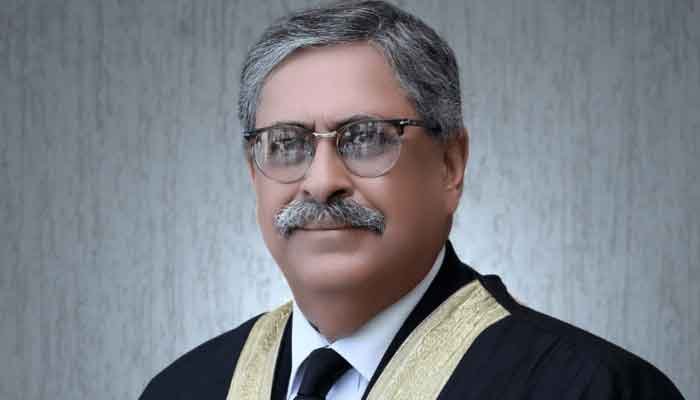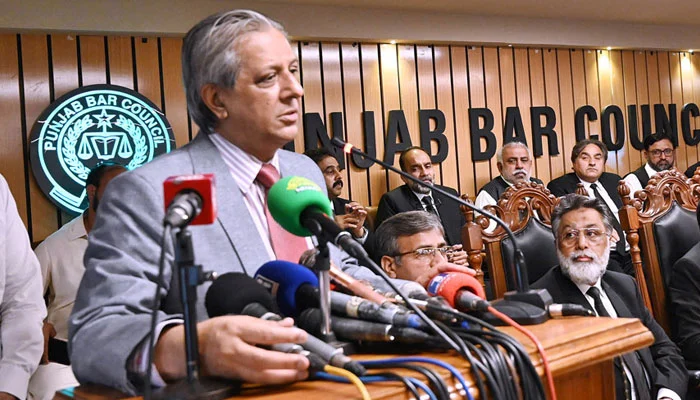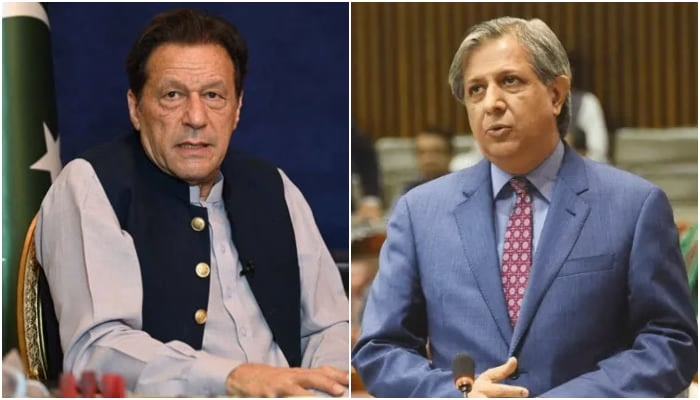Supreme Court Judge Justice Athar Manullah recently made a strong statement during a hearing, defending the integrity of the judiciary against allegations of partiality. Addressing the Attorney General Mansoor Usman Awan, Justice Manullah insisted that there are no “black sheep” within the Supreme Court, a phrase used to imply dishonest or corrupt individuals.
Context of the Hearing
The comments were made during a session where a five-member bench, led by Chief Justice of Pakistan Qazi Faiz Isa, was hearing the government’s appeals against the nullification of recent amendments to the National Accountability Bureau (NAB) laws. The NAB amendments have been a contentious issue, with debates over their implications for accountability and governance in Pakistan.
Justice Athar Manullah’s Statement
In a pointed remark to the Attorney General, Justice Manullah said, “Attorney General, you will go and tell the Prime Minister that there are no black sheep in the Supreme Court.” This statement was a direct response to recent political discourse suggesting that some members of the judiciary are biased or corrupt.
Political Backdrop
The backdrop to Justice Manullah’s comments includes a statement made by Prime Minister Shehbaz Sharif during a speech at the PML-N General Workers’ Council meeting. The Prime Minister had remarked that while the majority of judges are committed to the country’s prosperity, a few “black sheep” within the judiciary are determined to provide undue relief to former Prime Minister Imran Khan.
Call for Accountability
Justice Manullah further challenged the Attorney General to ask the Prime Minister to file a formal reference if there are indeed any black sheep within the judiciary. This call for accountability and transparency underscores the judiciary’s stance on maintaining its integrity and the rule of law.
Judicial Independence
The comments by Justice Manullah are significant in the context of judicial independence. They highlight the judiciary’s resistance to external pressures and its commitment to fair and unbiased justice. The suggestion to file a reference is also a procedural route, emphasizing that any allegations should be substantiated through proper legal channels rather than being aired in public speeches.
Reaction and Implications
The reaction to Justice Manullah’s statement has been mixed. Supporters of the judiciary see it as a necessary defense of judicial independence, while critics may view it as a deflection from legitimate concerns about partiality within the judicial system. Nonetheless, the statement has sparked a broader conversation about the role of the judiciary and the importance of maintaining its integrity.
Prime Minister’s Position
Prime Minister Shehbaz Sharif’s comments reflect a broader frustration within the government regarding judicial decisions that appear to favor opposition figures, particularly Imran Khan. The Prime Minister’s assertion that most judges are aligned with the country’s prosperity, while a few are not, points to ongoing tensions between the executive and the judiciary.
Justice Athar Manullah’s remarks serve as a powerful reminder of the judiciary’s role in upholding justice and resisting undue influence. By urging the Attorney General to convey a message of integrity to the Prime Minister and inviting formal procedures for addressing any allegations, Justice Manullah reaffirmed the judiciary’s commitment to transparency and accountability.
As Pakistan navigates its complex political landscape, the independence and integrity of its judicial system remain paramount. The dialogue between the judiciary and the executive, though at times contentious, is crucial for the healthy functioning of the country’s democracy. Moving forward, it will be essential for all branches of government to work together, respecting each other’s roles and upholding the principles of justice and fairness for all citizens.



